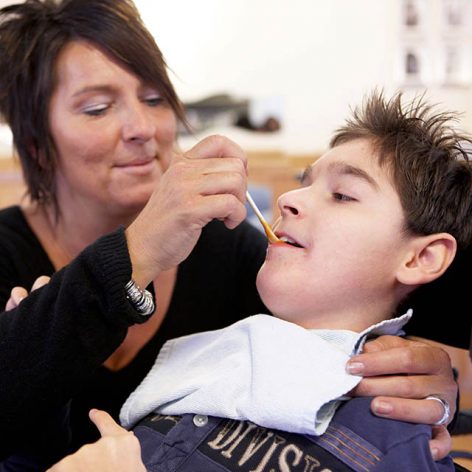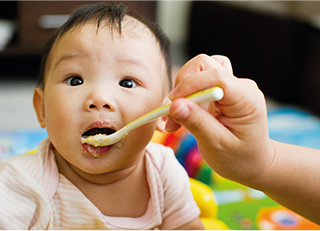Infants who are born preterm or with a brain injury have a higher risk of developing neurodevelopmental disorders, for example cerebral palsy or cognitive impairments.
The brain is highly adaptive and plastic in the first two years of life and may have the capacity to alter its structure and function in response to injury.1Andrew MJ MJ. et al. . Feeding difficulties in children with cerebral palsy. Arch Dis Child Educ Pract Ed. Published on 2012; 97: 222–9 ,2Lucas A A. et al. Randomised trial of early diet in preterm babies and later intelligence quotient. BMJ . Published on 1998; 317: 1481–7 ,3Lucas A. et al. Early diet in preterm babies and developmental status at 18 months. Lancet . Published on 1990; 335: 1477–81 Unfortunately, there are not any interventions currently available to improve neurodevelopmental outcomes in these infants.
Hypothetically, an intervention providing essential nutrients for brain development might support the infants’ adaptive response. Recently, researchers reported results from such a nutritional intervention in a clinical trial.
Clinical trial in newborn infants at risk of neurodevelopmental impairment
Developmental Medicine & Child Neurology published “Neurodevelopmental outcome of nutritional intervention in newborn infants at risk of neurodevelopmental impairment: the Dolphin neonatal double-blind randomized controlled trial.”
This clinical trial investigated the effect of a nutritional intervention with neurotrophic nutrients on neurodevelopment in newborn infants at risk of undesired neurodevelopmental outcomes. The infants included in this study were either born very preterm and/or were small for their gestational age or were born preterm or term with perinatal brain damage.
Infants in the study received either a placebo or a supplement with neurotropic nutrients, that is nutrients linked to brain development. There was no statistically significant neurodevelopmental advantage for the treatment group versus the comparison group. Study results show non-significantly higher scores of language and cognitive development in infants who received the supplement compared to infants who received the placebo product, without neurotropic nutrients.
These results are in line with the Dolphin infant trial that was published earlier in the same journal. The first trial studied the same intervention, however in a different population: children with suspected Cerebral Palsy.
Conclusion
This study investigated the effect of a nutritional intervention with DHA, choline and uridine on neurodevelopmental outcome in newborns at risk of neurodevelopmental impairment. Despite the findings not having reached statistical significance, authors of the study consider the effects as clinically meaningful, similar to the Dolphin trial in infants with suspected Cerebral Palsy.
Therefore, these two pilot studies warrant a well-powered efficacy trial to enhance the understanding of possible effects of an early nutritional intervention on neurodevelopment in infants at risk of a neurodevelopmental impairment.
View References
| 1 | Andrew MJ MJ. et al. . Feeding difficulties in children with cerebral palsy. Arch Dis Child Educ Pract Ed. Published on 2012; 97: 222–9 |
|---|---|
| 2 | Lucas A A. et al. Randomised trial of early diet in preterm babies and later intelligence quotient. BMJ . Published on 1998; 317: 1481–7 |
| 3 | Lucas A. et al. Early diet in preterm babies and developmental status at 18 months. Lancet . Published on 1990; 335: 1477–81 |



